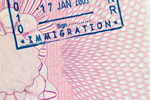Is Thailand still a dream destination for Western expats?

Is Thailand still a dream destination for Western expats?
Traditionally, Thailand has been a popular retiree destination for its tropical climate, inexpensive cost of living and well-established expat communities in a number of towns and cities. A recent survey rated the Southeast Asian country as ninth in the world for a successful expat retirement, adding it’s especially convenient for those wishing to explore the rest of the region and for those who need to make regular visits back to the home country.
As regards diet, there’s a huge choice of international cuisine available nowadays, although it’s increasingly more expensive whether purchased in specialist stores or served up in restaurants. Local Thai food can still be sourced cheaply, especially at local markets, but endless chilli-pepper flavoured meals can get tedious for those who like a varied diet. Local beer is cheap, but good wine is almost unaffordable and there’s little knowledge about vintages.
For those looking to integrate into local communities, the Thai Smile isn’t what it used to be, and scams and dual pricing for expats are now far more frequent. At the present time, the country is run by a military junta, but politics are generally a no-go area for expats wishing to discuss the issue. Unfortunately, long-stay visas are now a source of revenue, with more money needed before the so-called retirement visas are either given or renewed, and compulsory quarterly reporting to immigration now required. In addition, the dreaded TM30 report required when an expat stays anywhere but his registered address for just one night is causing anger amongst the country’s expat communities.
In the past, Thailand’s healthcare provisions have been considered inexpensive, drawing a good number of medical tourists to the country’s private hospitals, but prices have soared over the past few years and even the public hospitals are now charging twice the amount paid by locals. As regards the Thai language, the majority of new arrivals try hard to learn to at least speak it, but the vast majority fail. English is rarely spoken well outside the capital, even although all Thai children are taught it at school.
Another recently-introduced rule applying to expats is that all those on an O-A visa must purchase private health insurance from a listed Thai insurance .company. This has caused many long-stay expats to consider leaving as the cost is high and the benefits are too low to be of use should a serious illness or accident occur. Also, eligibility ends at 75 years, and international private health insurance isn’t accepted by immigration when a visa or extension is being sought.
The combination of the above and increasingly onerous immigration requirements should be given careful consideration before the decision to retire in Thailand is made, with another issue at present the high baht’s exchange rate, especially with the pound sterling. For those with a hefty private or occupational pension, a comfortable retirement in Thailand is still possible, but for would-be expats on UK state pensions, it could well be considered too expensive.
Related Stories:
- Foreigners and expats condemn Thailand attractions dual pricing - July 14, 2020
- Thailand unwilling to extend amnesty for trapped expats - July 10, 2020
- Expats trapped in Thailand fear the end of their visa amnesty - July 8, 2020
- Western expats in Cambodia watch in horror as China moves in - July 6, 2020
- Are Southern Spain and its drugs wars safe for retired expats? - July 2, 2020
- Pros and cons of Thailand as an expat destination - July 1, 2020
- Why France and which visa for Brit expats? - June 24, 2020
- How are expats in Thailand coping with the uncertainty? - June 15, 2020
- Expats in Thailand denied the security of permanent residency - June 11, 2020
Latest News:
- Tips on a trouble-free relocation as an expat overseas - July 20, 2020
- Expats find peace in the covid-19 refuge of Dahab town - July 20, 2020
- Is Kuwaitization the unintended result of the oil price crash? - July 20, 2020
- Expats unhappy abut changes to Korean points-based visa system - July 17, 2020
- Chiang Mai and Bangkok no longer bargain locations for expats - July 17, 2020
- Expats in Malaysia still banned from overseas travel - July 17, 2020
- Vietnam welcomes expats to its safe, affordable lifestyle - July 16, 2020
- Asian tiger economies reach out to expats in Hong Kong - July 16, 2020
- HSBC Asia to cut back on internal expat relocations - July 16, 2020
- Tips on integrating for newly-arrived expats - July 15, 2020


